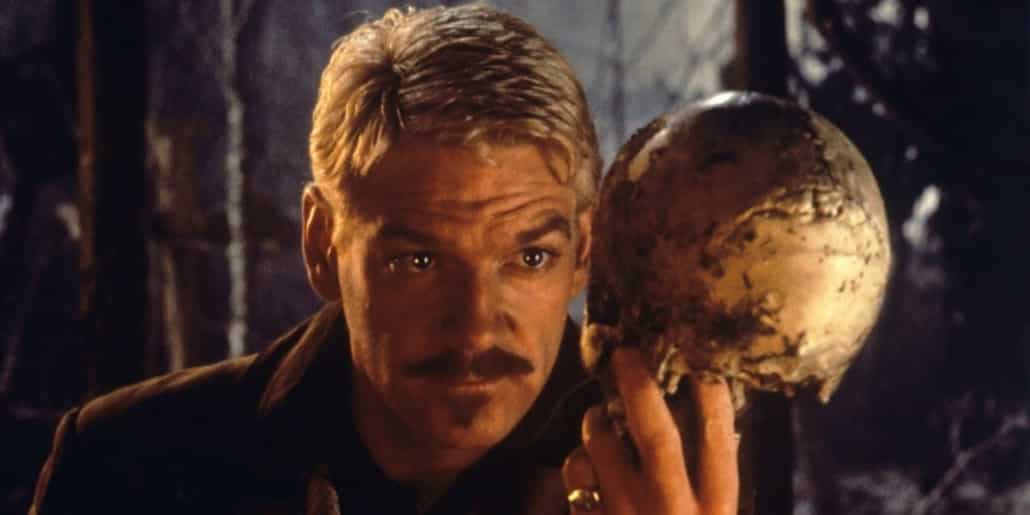Read Shakespeare’s ‘How all occasions do inform against me’ soliloquy from Hamlet below with modern English translation and analysis, plus a video performance.
‘How All Occasions Do Inform Against Me’, Spoken by Hamlet, Act 4 Scene 4
How all occasions do inform against me,
And spur my dull revenge! What is a man,
If his chief good and market of his time
Be but to sleep and feed? a beast, no more.
Sure, he that made us with such large discourse,
Looking before and after, gave us not
That capability and god-like reason
To fust in us unused. Now, whether it be
Bestial oblivion, or some craven scruple
Of thinking too precisely on the event,
A thought which, quarter’d, hath but one part wisdom
And ever three parts coward, I do not know
Why yet I live to say ‘This thing’s to do;’
Sith I have cause and will and strength and means
To do’t. Examples gross as earth exhort me:
Witness this army of such mass and charge
Led by a delicate and tender prince,
Whose spirit with divine ambition puff’d
Makes mouths at the invisible event,
Exposing what is mortal and unsure
To all that fortune, death and danger dare,
Even for an egg-shell. Rightly to be great
Is not to stir without great argument,
But greatly to find quarrel in a straw
When honour’s at the stake. How stand I then,
That have a father kill’d, a mother stain’d,
Excitements of my reason and my blood,
And let all sleep? while, to my shame, I see
The imminent death of twenty thousand men,
That, for a fantasy and trick of fame,
Go to their graves like beds, fight for a plot
Whereon the numbers cannot try the cause,
Which is not tomb enough and continent
To hide the slain? O, from this time forth,
My thoughts be bloody, or be nothing worth!
‘How All Occasions Do Inform Against Me’ Soliloquy Translation
How the examples provided by everything around him denounced him and reminded him of his inability to sweep to his revenge! What was a man if his most profitable employment was to eat and sleep? Nothing more than an animal. He who made us with that vast capacity for understanding, that ability to reflect on experience and learn from it, didn’t give us that god-like reason just to let it go mouldy from disuse. He didn’t know what it was that was stopping him. Whether it was animal-like inability to understand or some cowardly nit-picking – thinking too precisely about it, analysing his thoughts, which were one quarter wisdom and always three quarters cowardice. He didn’t know why he was saying, ‘this still has to be done’ since he had the reason and the desire and the strength and the means to do it. Examples as weighty as the earth keep urging him. Look at the way this inexperienced young prince, puffed with divine ambition and scorning everything that fortune, death and danger could throw at him, was leading this huge expensive army on a campaign to gain a piece of land that was nothing more than an eggshell. True greatness wasn’t a matter of rushing into action for any trivial cause but when honour was at stake it was noble to act, no matter how trivial the cause was. Where did he stand, then, his father murdered, his mother stained – two huge incentives – and not do anything? It was to his shame that he was watching the imminent death of twenty thousand men who were going to their deaths as easily as one would go to bed, for almost no reason, fighting for a plot of land that was so small that they wouldn’t even fit on it, that wasn’t even big enough for the fallen to be buried on.
Oh, from now on his thoughts would be bloody, or not worth having!
Watch ‘How All Occasions Do Inform Against Me’ Soliloquy Performance

Kenneth Brannagh as Hamlet




Never did get that “eggshell” part, just thought it was about how they were getting much less than what they deserved. Who knew it was so much more simple than that. Thanks for the translations.
No problems at all Brandon – glad you found the Hamlet soliloquy translation of use!
Great translation!
Thanks for the great translation!
Useful translation.